British director Zeina Durra’s debut feature The Imperialists Are Alive! is screening at the Birds Eye View Film Festival in London this week. She talks to Screen about her upcoming projects and why she doesn’t want to be known as a ‘female film-maker.’
British director Zeina Durra has been rushing from New York to Italy to London and back again promoting her debut feature film, The Imperalists Are Alive! which world premiered at Sundance in 2010.
The Imperialists Are Alive! tells the story of Asya, (played by Elodie Bouchez), a successful visual artist of French/Arab/US descent living in post-9/11 New York, who finds herself in a blossoming romance with handsome Mexican PhD student Javier (Jose Maria de Tavira), whilst watching events in the Middle East play out on television.
Durra, who is of Middle Eastern and Bosnian descent, first came to attention with her 2005 short film, The Seventh Dog. She has two other projects in the works, including English country-house drama Chinchilla Killer and a socio/political road movie set in Jordan.
Where did the idea for The Imperialists Are Alive! stem from?
Living in New York, before 9/11 there was always prejudice against Middle Easterners and they sort of tried to hide it, but post 9/11 they didn’t try and hide it and what had been latently present became unashamedly blatantly there.
It was interesting to see and be a part of that—which I very much was. I worked with a lot of relief efforts while still trying to live my day-to-day life. It was important for me to make this film and tell the story of someone who has had those types of experiences as I don’t think it has really been expressed before.
You wanted to tell the story of a woman of Middle Eastern descent growing up in the Western world—was the story at all autobiographical?
It was totally autobiographical. Because I was born in the UK, I was able to stay in New York after 9/11, but so many of my friends had to leave. Those people who didn’t have citizenship anywhere else but the Middle East didn’t think staying would be worth what they would have to face in the US.
You shot the film in New York. What drove you to make your first feature overseas?
I attended film school at New York University and moved to the States when I was 22. My adult life has been there and in the end, I am a New Yorker. I wanted this film to be from the perspective of anyone who has been brought from one place to another—that secret gift of discovering something new and finding yourself in different places. The Imperialists Are Alive! is my love letter to New York—I absolutely love that city and since I’m moving to London now, I wanted to give a little tribute. When you’re not American living in America, there is definitely a different perspective and I wanted to show that sense of the new.
All I can hope for is that people will see the film and look at the world in a slightly different way. I love it when people will call me up and say, “I can’t stop thinking about your film. This is going to stay with me for a long time.” I just want people to watch it and leave with the ideas and themes working in their heads.
Who/what have been your main inspirations?
Most of my inspiration tends to come from older films—no one in the past 10 years has really blown my mind. A few would be: French filmmaker Agnes Varda, Fellini, and Antonioni. More recently, I thought the Greek film Dogtooth was pretty mind-blowing and the people behind that are going to be great.
How do you feel about the distinction between being a “filmmaker” and “female filmmaker”? What would you like to be known as?
Zeina Durra. That’s what I want to be known as. The film industry is dominated by white males so I think it is important for there to be a platform for minority filmmakers to show and voice their perspectives. The white male take on a film is going to be incredibly different from that of many others and I do think it’s great for there to be outlets to show those different perspectives. I don’t think of Kathryn Bigelow, myself or any other woman filmmaker as female filmmakers. I’m just a filmmaker who happens to be a woman.
Although you don’t like to make the distinction, have you found there to be any struggle or difficulties in your career because you are a woman?
Oh, definitely. Guys will read my script and say, “Why are the male characters so underdeveloped?” I’m thinking, they aren’t underdeveloped at all — in fact, I think they turned out quite nicely in this film, it’s just that the focus is on the woman. Men are scared when they aren’t the centre of attention.
What are you looking most forward to at Birds Eye View 2011?
In general, I’m just looking forward to what the programme has to offer. I’ve been crazy busy releasing this film so I haven’t had much of a chance to look it over, but I think the films you stumble into tend to be the best.
Also, my film hasn’t been shown in London yet. I’ve been going to the ICA since I was a little girl, so it’s very exciting for me to premiere my film here. All of the people behind Bird’s Eye View are very smart and I’m happy to be a part of such a smart and supportive festival.
What are you working on now?
My next film is going to be a modern-day English country house drama titled Chinchilla Killer. The film will kind of take the romanticism out of the English country side—it’s going to be really funny. The story is about a girl who goes to the country with her boyfriend for the weekend, but she really doesn’t want to be there. It should be quite comedic as she tries to keep herself under control, but really fails in doing so. The script is written and we’ll probably start filming in the autumn.
My next project was going to be a road-trip movie set in Jordan, but it is going to cost quite a lot of money and I know the industry is really difficult right now. I’m living in England now for a while, so I figured I would make the country house drama and gain a platform so the Jordan project can be on the scale that I want it to be.




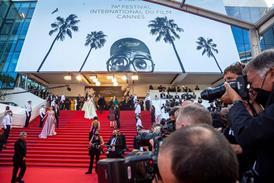
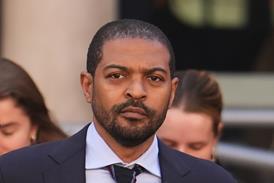
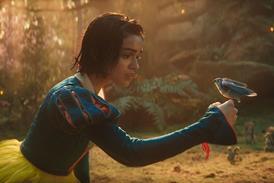
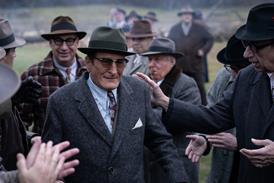



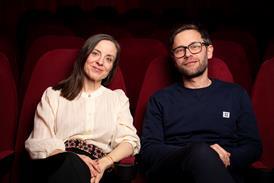
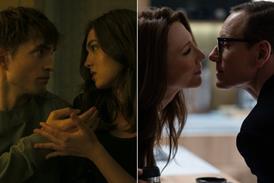









No comments yet